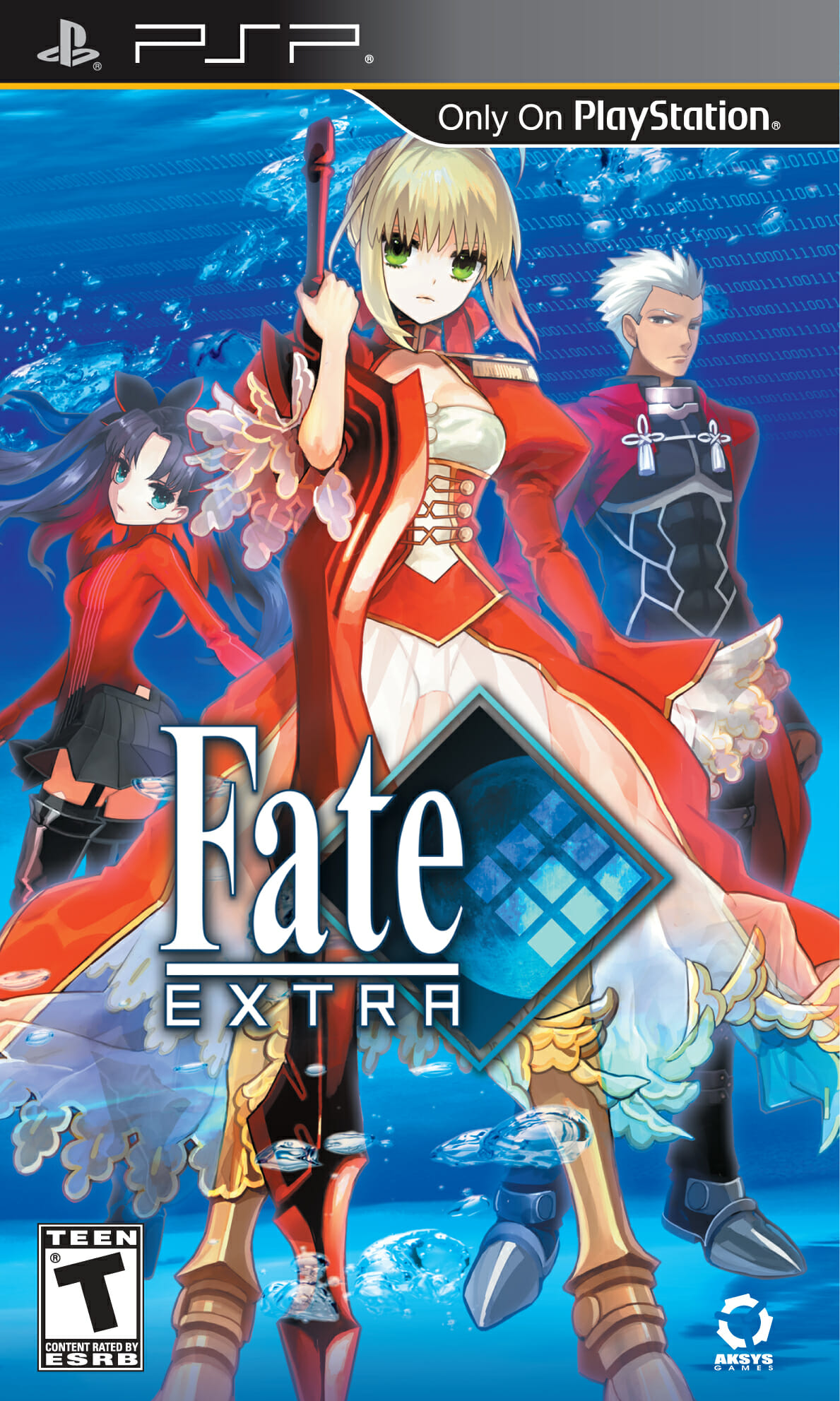Fate/Extra (PSP)

In the opening of Fate/Extra, you will be mocked for looking and acting like an NPC. You won’t think it’s fair because you can’t help it: That’s what you are. It’s a creepy ghost story by a clever writer that belongs in a better game.
Another notable line uttered in the opening comes from a character named “Male Student”: “One of my desk’s legs is shorter than the other and it keeps shifting around. ARGH! It’s driving me insane!” Fate/Extra does not have the most breathlessly inane NPC dialogue I have ever read, but even though it comes close, it deserves credit for making banal conversations a plot point. Fate is a story about identity and videogames that tries something brave and new that fails so completely the game cannot recover.
First, some backstory. Like many curious Japanese games, Fate/Extra is based on a popular series that you’ve probably never heard of. Fate/Stay Night is not available through legal channels, but it has been translated into English. It is a visual novel significantly longer than the Lord of the Rings trilogy about a game in which modern-day sorcerers summon famous figures from history and legend to fight over a Holy Grail (but not the Holy Grail) which can grant the bearer a wish. Don’t worry about this part: all you need to know is that Fate is awesome because it’s about who would win in a fight between King Arthur and Gilgamesh.
Fate/Extra hopes to tap into this magic, and with a script by the original writer, Kinoku Nasu, it has a fair shot. The plot is good; twentysomethings that watched Evangelion in their teens will have a certain fondness for being mind-fucked, and if nothing else, Nasu is a gifted mind-fucker. The game falls flat anyway, because the combat is a brave but sad shot in the dark and the story doesn’t have enough cooking.

First, the cooking. Fate/Extra is set not in a high school (like the original Fate, or Persona, which this game resembles in many ways) but in a virtual reality high school. This defeats the entire purpose of setting it in a high school. In Fate/Stay Night, a great deal of the game is spent cooking and talking about food. Fans of Fate’s over- the-top fight scenes find Nasu’s cooking fixation in the visual novel to be amusing, but the quiet moments of Fate pull you into the endearing relationships between the characters, which are the only reason to care about the story at all.
This would be easier on Fate/Extra if its premise, single elimination fights to the death over the course of seven weeks, was given due gravitas. The fights with your opponents are steeped in melodrama, which you should be used to if you’ve ever played an RPG, but absence of those small moments really hurts. Fate/Extra never feels as dark as the reality of its premise.
This premise is where the gameplay comes in. It’s not good to separate gameplay from story, which Fate/Extra understands. Fate/Extra’s combat is (thankfully) very different from most RPGs. Since the late 90s, RPGs have struggled with figuring out how to make themselves fun after is was clear the standard >fight >magic >skill >item needed a bit of added depth. Fate also wants a combat system that can feel a little bit like a tense battle between two legendary heroes, which is a noble goal.

An important plot point they won’t really explain to you in Fate/Extra is that the legendary heroes you summon (they call them Servants) deliberately conceal their own names. The logic being that if you know you’re fighting King Arthur, you’re going to have to watch out for Excalibur, but if you don’t, you’ll never see it coming.
And so Fate/Extra has a interesting side to its gameplay. During the course of a week, you will grind in a terrible dungeon that nearly makes the game unplayable, but you’ll also be searching for clues as to the identity of your opponent’s Servant.
